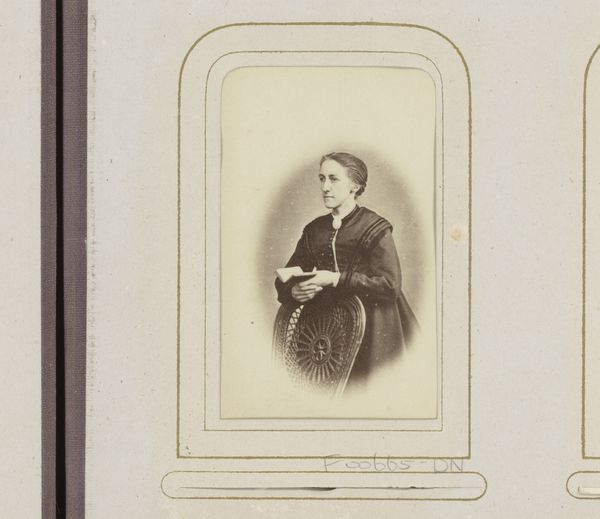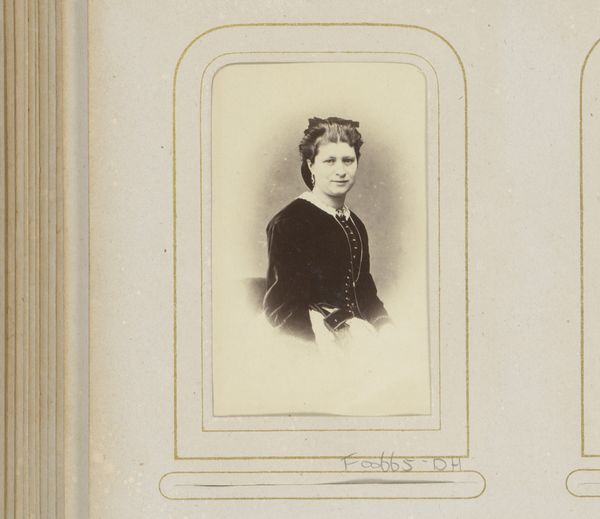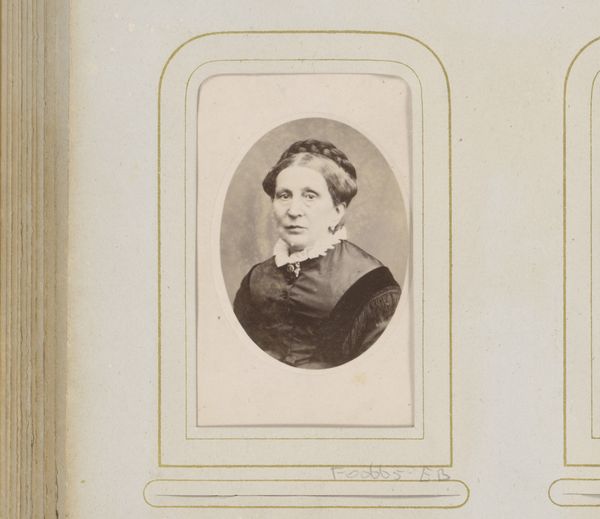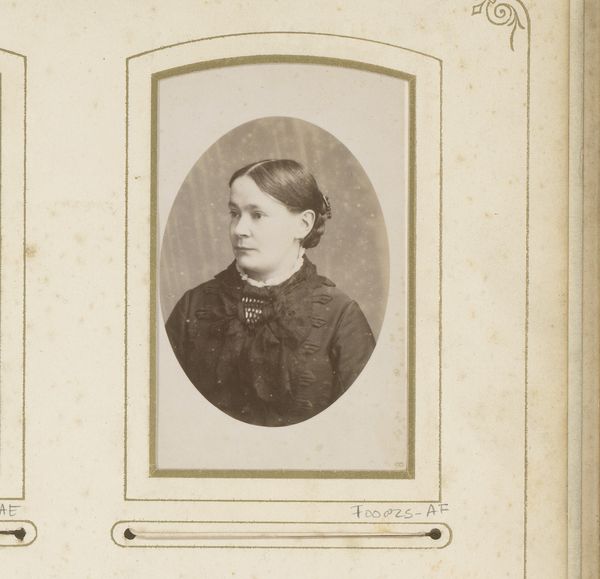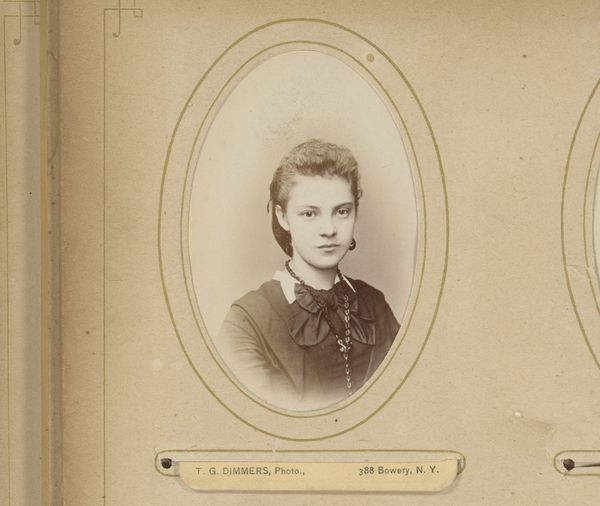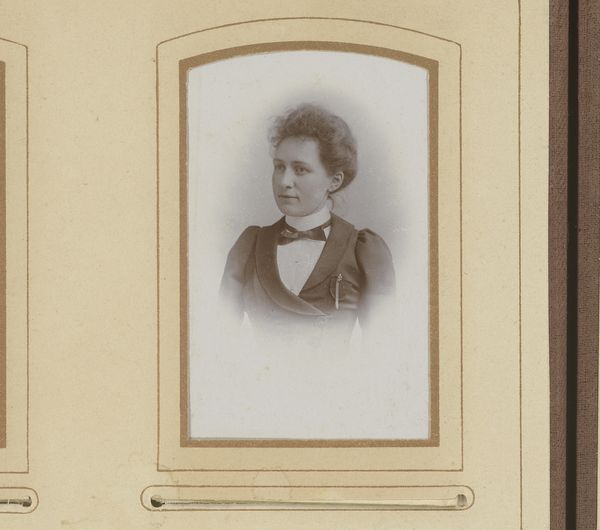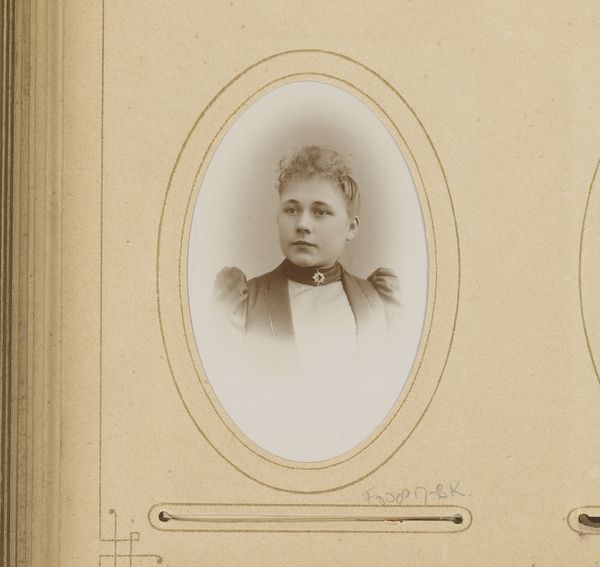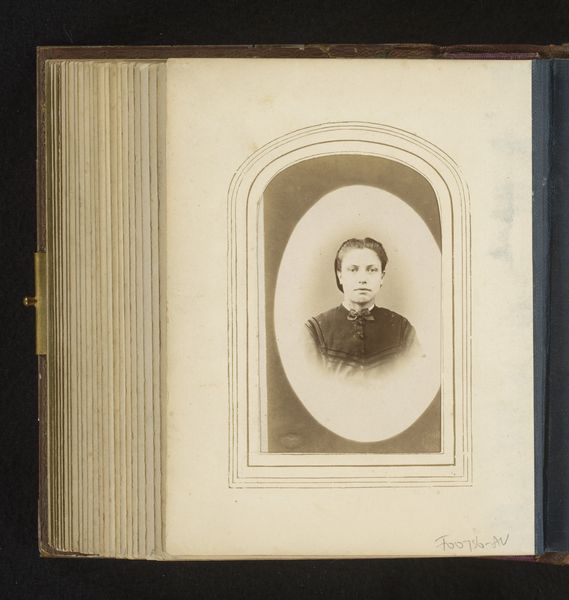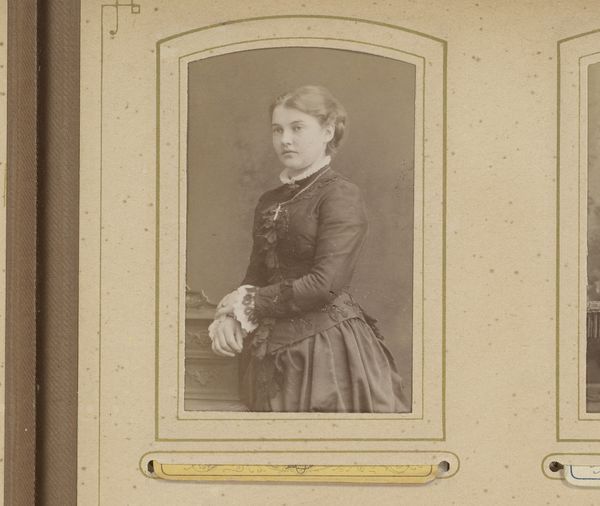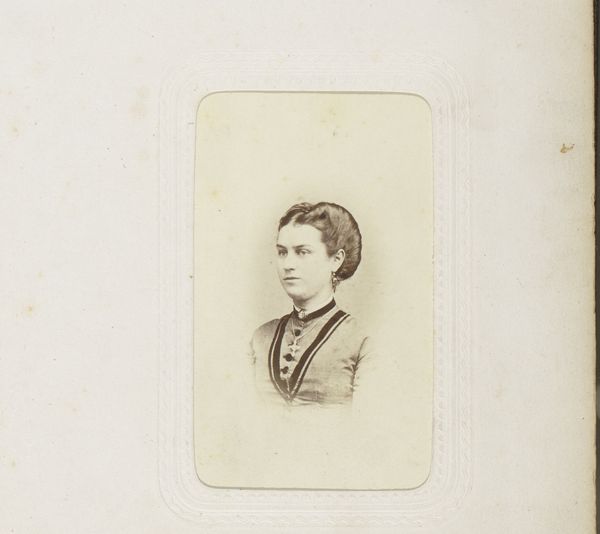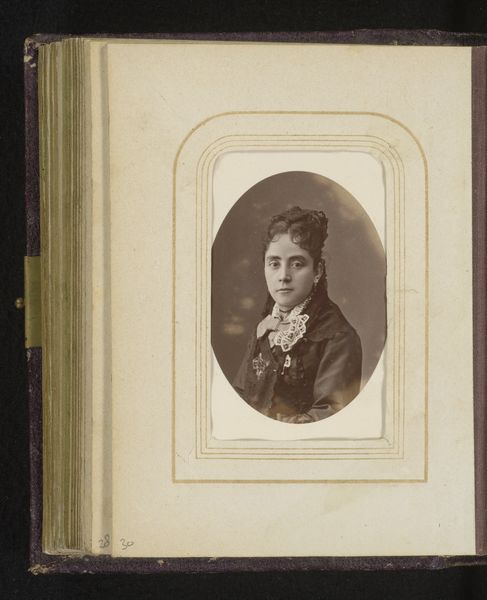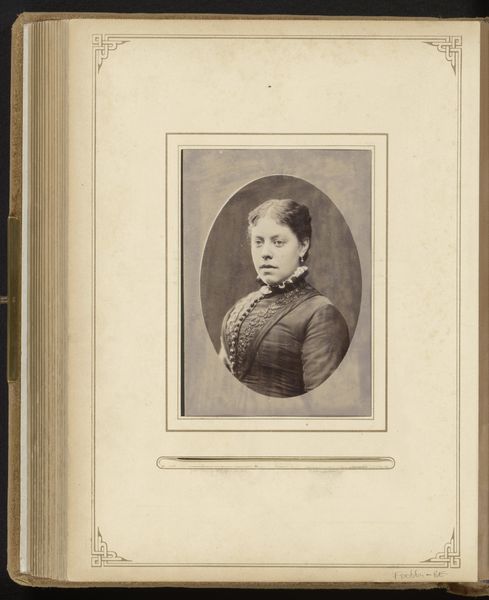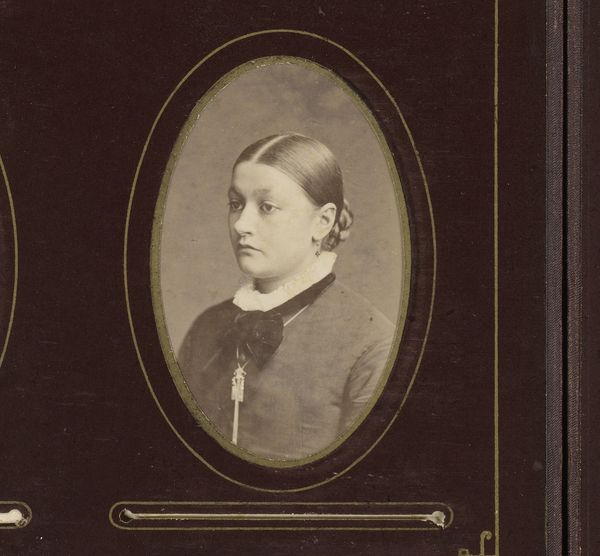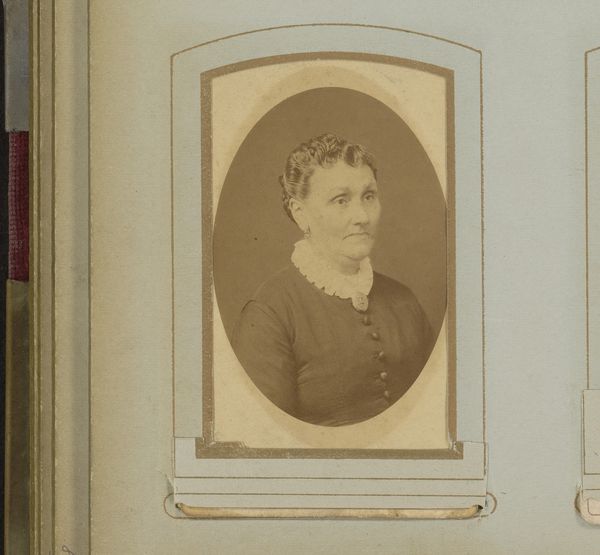
photography
#
portrait
#
photography
#
19th century
Dimensions: height 85 mm, width 55 mm
Copyright: Rijks Museum: Open Domain
Editor: Here we have "Portret van een vrouw," dating from about 1870 to 1885, attributed to Chaffin & Sons. It's a small photographic portrait, encased in what looks like an album page. The delicate oval frame is so charming! How can we approach this work beyond just seeing a picture of someone? Curator: I’m intrigued by its materiality. This isn’t just a photograph; it's an object produced and consumed within a specific social and economic context. Think about the rise of photography in the 19th century – the industrialization of portraiture. This image wasn't just made, it was manufactured, traded, and became accessible to a broader middle class. How does that mass production shift the meaning of "portrait"? Editor: That's a perspective I hadn't considered! I guess I was stuck on it just being a picture. So, are you saying the act of creating and owning this *type* of photograph might be more significant than who is actually in the photograph? Curator: Precisely. Consider the labor involved. Someone mined the materials for the glass plates, processed the chemicals, and operated the camera. And how might the sitter’s social class influenced the kinds of materials, the amount of labor poured in the photograph to suggest status? Editor: So, the artistry isn’t necessarily in capturing a likeness, but in the entire production and the consumer's choice to participate in this culture of image making. Wow. I’ll never look at an old photograph the same way again. Curator: Indeed. Focusing on the production, materials, and its context helps us understand its place in society beyond just its aesthetic appeal.
Comments
No comments
Be the first to comment and join the conversation on the ultimate creative platform.
